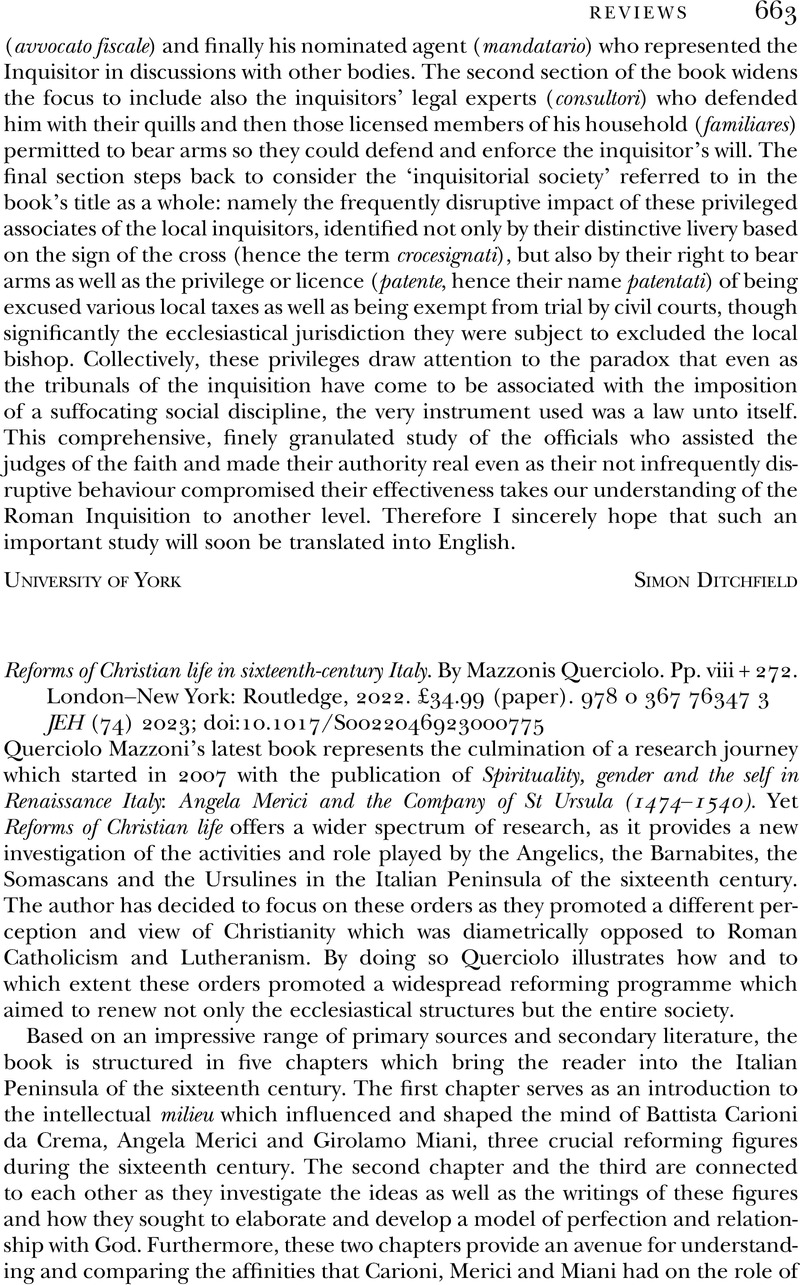No CrossRef data available.
Article contents
Reforms of Christian life in sixteenth-century Italy. By Mazzonis Querciolo. Pp. viii + 272. London–New York: Routledge, 2022. £34.99 (paper). 978 0 367 76347 3
Review products
Reforms of Christian life in sixteenth-century Italy. By Mazzonis Querciolo. Pp. viii + 272. London–New York: Routledge, 2022. £34.99 (paper). 978 0 367 76347 3
Published online by Cambridge University Press: 05 July 2023
Abstract
An abstract is not available for this content so a preview has been provided. Please use the Get access link above for information on how to access this content.

- Type
- Reviews
- Information
- Copyright
- Copyright © Cambridge University Press 2023



